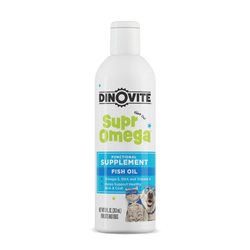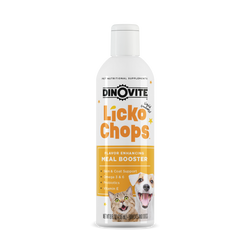Tackling Skin Allergies in Dogs

Dogs can suffer from various skin allergies that impact their comfort, quality of life, and overall health. These allergies often lead to itching, redness, and discomfort, and without proper treatment, they can result in more severe skin conditions.
Understanding the causes, symptoms, and management options for dog skin allergies is crucial to help you support and improve your dog’s skin and coat health. Let’s dive into the most common causes, what they look like, and how you can help your dog find relief.

What Causes Skin Allergies in Dogs?
Skin allergies in dogs can result from several factors, including environmental triggers, food sensitivities, parasites, and certain contact allergens.
- Environmental Allergens: Like humans, dogs can be sensitive to pollen, mold, dust mites, and even certain plants. Seasonal changes can exacerbate these allergies, especially during spring and fall, when pollen counts tend to be higher.
- Food Allergies: Dogs can develop allergies to specific food ingredients, with common triggers including beef, chicken, dairy, wheat, and soy. If your dog’s symptoms persist year-round, food allergies could be the underlying cause.
- Flea Allergies: Fleas are a common culprit for skin allergies in dogs. Some dogs are hypersensitive to flea saliva, leading to intense itching and inflammation even from a single flea bite.
- Contact Allergies: Dogs can have allergic reactions to certain materials like wool or synthetic fibers, as well as chemicals in products like detergents, grooming products, or even certain types of flooring.
How Do Skin Allergies Look on a Dog? Skin Allergy Symptoms:
Skin allergies often present with a variety of symptoms, and they can vary depending on the severity and cause of the allergy. Common signs of skin allergies in dogs include:
- Persistent Itching and Scratching: This is often the first sign of skin allergies. If your dog seems to scratch constantly or focuses on specific areas, it could be due to an allergy.
- Redness, Inflammation, or Hot Spots: Allergic reactions can cause your dog’s skin to become red, inflamed, or develop hot spots—localized areas of skin that are warm, red, and often painful.
- Hair Loss or Thinning Coat: Due to constant scratching, your dog may experience hair loss in affected areas. This can lead to patchy or thinning fur.
- Dry or Flaky Skin: Allergies can cause dry, flaky skin, similar to dandruff in humans. In some cases, the skin may appear greasy or oily as it tries to compensate for dryness.
- Secondary Skin Infections: When dogs scratch excessively, they can break the skin, leading to bacterial or fungal infections. These infections may cause additional redness, swelling, and an unpleasant odor.
How Does Seborrhea Look on a Dog?
Seborrhea is a common skin condition in dogs that often accompanies allergies. It occurs when the skin produces too much sebum, leading to oily skin and flaky patches. There are two types of seborrhea: seborrhea sicca (dry) and seborrhea oleosa (oily). Common symptoms of seborrhea include:
- Greasy Coat: Dogs with seborrhea oleosa may have a greasy or waxy coat, with a noticeable odor.
- Dry, Flaky Skin: In seborrhea sicca, dogs often develop flaky skin that resembles dandruff, which may accumulate along the back, neck, and tail.
- Red, Itchy Patches: Seborrhea can cause red, inflamed skin and exacerbate itching, leading to further discomfort.
If you notice any of these symptoms, consult with your vet, as they can recommend the best treatment options and help rule out any underlying health issues.
What Does a Parasite Rash Look Like on a Dog?
Parasites, like fleas and mites, can cause rashes and intense itching, leading to a specific kind of skin irritation. Common signs of a parasite-related rash include:
- Small Red Bumps or Spots: Flea bites may appear as small red bumps, typically around the tail base, groin, and inner thighs.
- Scabs or Crusty Patches: Dogs with mite infestations may develop scaly, crusty patches on their skin, often accompanied by hair loss.
-
Thickened or Darkened Skin: Prolonged scratching can cause the skin to thicken and darken, especially in cases of mange, where mites burrow into the skin.
What Can You Do for Skin Allergies in Dogs?
Managing skin allergies in dogs involves a combination of preventative measures, diet adjustments, supplements, and sometimes prescribed medications. Here’s how you can help relieve your dog’s symptoms:
- Consult with Your Vet: If you suspect your dog has skin allergies, it’s essential to seek professional veterinary advice. Your vet can help diagnose the specific allergy through tests or elimination diets. A proper diagnosis can make all the difference in finding the right solution.
- Allergen Avoidance: Identifying and minimizing exposure to allergens can reduce symptoms significantly. For environmental allergies, try keeping your dog indoors during high pollen seasons. Wash bedding regularly with hypoallergenic detergents and consider switching to a limited-ingredient diet if food allergies are suspected.
- Omega Fatty Acids: Adding omega fatty acids to your dog’s diet can support skin and coat health. Fish oil for dogs and salmon oil for dogs are excellent sources of omega-3s, which help soothe inflammation and reduce itching. Since dogs cannot produce omega-3 and omega-6 fatty acids on their own, these essential nutrients must be added to their diet.
- Dinovite for Dogs: Dinovite is a powdered supplement packed with omega fatty acids, prebiotics, probiotics, and other essential nutrients that promote skin and coat health. Daily use can help relieve itching, hot spots, and seasonal allergies by working from the inside out to support immune function.
- Lickochops: For dogs that need an extra boost, Lickochops is a liquid supplement made with omega-3 and omega-6 fatty acids. This delicious, squeezable formula is easy to mix with your dog’s food, helping soothe skin irritations and promote a glossy coat.
- Regular Grooming and Bathing: Regular grooming can help remove allergens from your dog’s coat, and bathing with hypoallergenic shampoos can soothe irritated skin. However, over-bathing can strip the skin of natural oils, so finding the right balance is key.
- Prescribed Medications: In severe cases, your vet may recommend medications such as antihistamines, corticosteroids, or immune-modulating drugs. These can provide quick relief but are often used on a short-term basis due to potential side effects.
- Specialized Diets: Switching to a limited-ingredient or hypoallergenic diet can help dogs with food sensitivities. Squeezoble for Dogs is an ideal addition, as it provides essential omegas and antioxidants to support your dog’s overall well-being and skin health.
-
Flea Prevention: Flea control products and regular grooming are crucial for managing flea allergies. A quality flea prevention routine can help prevent reactions before they start.
Why Dinovite is a Top Choice for Dog Skin Allergy Support
Dinovite products offer a holistic approach to tackling skin allergies in dogs by focusing on immune health, skin support, and digestive well-being. Dinovite for Dogs contains a blend of omega fatty acids, probiotics, and essential vitamins that work together to reduce allergy symptoms from within.
Combined with other products like Lickochops and Squeezoble for Dogs, Dinovite can be tailored to meet your dog’s unique needs.
The Benefits of Omegas for Dogs
Omega fatty acids are crucial for dogs with skin allergies as they help combat inflammation and support a shiny coat. Salmon oil for dogs and fish oil for dogs are two excellent options that are easy to add to meals. These oils are rich in omega-3 fatty acids, known for their anti-inflammatory properties, and they provide additional benefits like improved joint health and cognitive support.
Key Takeaways for Managing Dog Skin Allergies
Skin allergies can significantly impact a dog's quality of life, causing discomfort and distress. By recognizing the causes, symptoms, and implementing an effective management plan, you can help alleviate your dog’s suffering and support a healthier, happier life.
- Understand the Causes: Identify environmental, food, flea, and contact allergens.
- Recognize the Symptoms: Keep an eye out for persistent itching, redness, and hair loss.
- Implement a Treatment Plan: Use a combination of diet, supplements, and flea control.
- Consider Dinovite Products: Dinovite, Lickochops, and Squeezoble are specially formulated to help support your dog’s skin and coat health.
With patience and the right approach, you can help your dog live a more comfortable life free from the irritation and distress caused by skin allergies.
*All information on this website is for educational purposes only and is not intended to replace the expert advice of a veterinarian or veterinary practitioner.
Related Products


